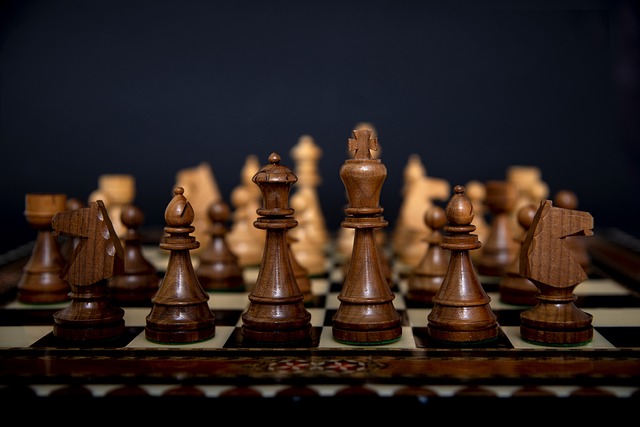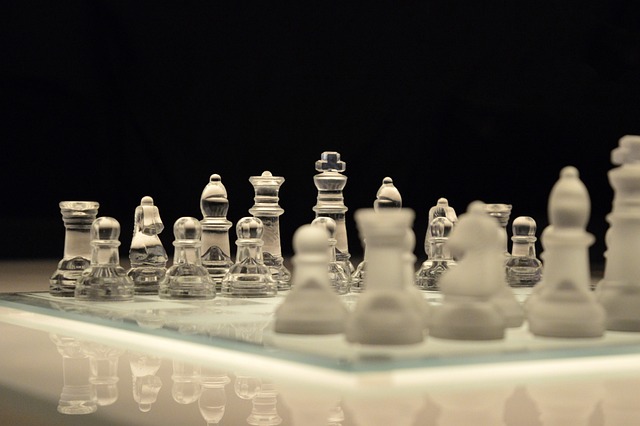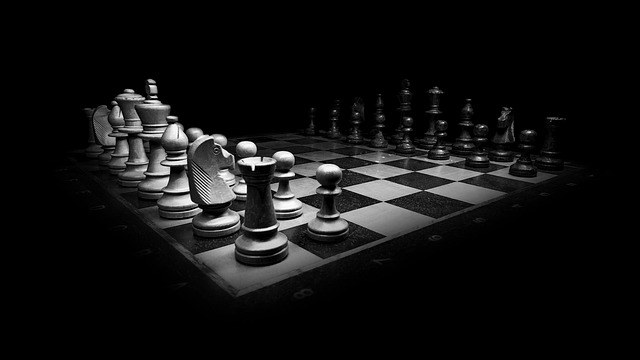Chess is a game that demands not only strategic thinking but also sharp memory. Remembering opening variations, tactical patterns, and past games can give players a significant advantage over their opponents. If you’ve ever wondered what the best way to train your chess memory is, you’ve come to the right place.
In this article, we will explore various techniques and strategies that can help you improve your memory skills and elevate your chess performance. From mnemonic techniques to visualization exercises, we will uncover the secrets to enhancing your chess memory and unlocking your full potential on the board.
How does memory training impact chess performance?
Memory training plays a crucial role in chess performance. The ability to recall and apply various chess concepts, such as opening lines, tactical motifs, and endgame positions, can significantly impact your decision-making process during a game.
By strengthening your memory, you can analyze positions more accurately, calculate variations more efficiently, and make informed strategic choices. Additionally, a trained memory allows you to quickly recognize patterns and positions, enabling you to make intuitive moves based on your previous knowledge and experience. Overall, memory training is a valuable asset for any chess player looking to improve their gameplay.
What are the key components of a strong chess memory?

A strong chess memory consists of several key components. First and foremost, visualization skills play a crucial role. The ability to vividly imagine the chessboard and visualize moves and variations in your mind allows you to analyze positions more effectively and improve your overall chess memory.
Another important component is pattern recognition. By studying various chess patterns, such as common tactical motifs or typical pawn structures, you can develop a mental database of patterns that you can recall during games. Additionally, a well-developed memory for past games and positions can help you draw upon similar situations and apply the lessons learned from previous encounters.
Lastly, attention and concentration are vital for memory retention. By maintaining focus and being fully present during your chess training and games, you can enhance your memory and retain information more effectively.
Can mnemonic techniques enhance chess memory?
Mnemonic techniques are powerful memory aids that can significantly enhance your chess memory. These techniques involve using associations, visualizations, and creative strategies to remember information more efficiently. For example, the method of loci, also known as the memory palace technique, involves associating chess concepts or positions with specific locations in a familiar setting.
By mentally navigating through this imagined location, you can recall the associated information. Similarly, the acronym technique can be used to remember specific sequences of moves or opening variations by creating memorable acronyms or phrases. Mnemonic techniques provide a structured and imaginative approach to memorization, making them valuable tools for chess players aiming to improve their memory skills.
How can visualization exercises improve chess memory?

Visualization exercises are an excellent way to improve your chess memory. These exercises involve mentally visualizing chess positions, moves, and variations without the aid of a physical chessboard. By practicing visualization regularly, you can strengthen your ability to imagine and manipulate the chessboard in your mind. Start with simple positions and gradually progress to more complex ones.
Focus on visualizing piece locations, potential moves, and the resulting positions after each move. As you become more proficient, challenge yourself to visualize entire games or series of moves. Visualization exercises not only enhance your chess memory but also improve your calculation skills, as you learn to foresee potential moves and their consequences in your mind’s eye.
Are there specific memory techniques for memorizing openings?

Memorizing chess openings can be a daunting task, but there are memory techniques that can make the process more manageable. One effective technique is to break down the opening into smaller chunks and focus on understanding the underlying ideas and strategic concepts behind each move. Rather than rote memorization, strive to comprehend the purpose and logic behind the moves.
Associating specific positions or key moves with memorable visualizations or stories can also aid in retention. Additionally, repetition and active recall are essential for solidifying opening knowledge. Regularly review and practice the openings you’re studying, and test yourself by playing through the moves without looking at a reference. By combining these memory techniques with a deep understanding of the opening principles, you can enhance your ability to recall and execute opening moves during games.
What role does pattern recognition play in chess memory?
Pattern recognition is a fundamental aspect of chess memory. Chess is replete with recurring patterns, such as tactical motifs, common pawn structures, and strategic plans. By studying and internalizing these patterns, you develop a mental database that allows you to recognize similar patterns in future games.
This recognition can be instantaneous, allowing you to quickly assess a position and identify potential tactical opportunities or positional advantages. Regularly solving tactical puzzles, analyzing famous games, and studying annotated positions can help sharpen your pattern recognition skills. The more patterns you engrave in your memory, the easier it becomes to retrieve and apply them during your games, giving you a competitive edge on the chessboard.
Effective Training Methods for Mastering Chess Memory
| Training Method | Description | Benefits |
|---|---|---|
| Visualization | Mental imagery | Enhances pattern recognition and improves calculation abilities |
| Puzzle Solving | Solving chess puzzles | Develops tactical awareness and problem-solving skills |
| Repetitive Practice | Repeating chess positions | Reinforces opening, middlegame, and endgame concepts |
| Analyzing Grandmaster Games | Studying top-level games | Enhances strategic understanding and positional play |
| Memory Drills | Memorizing game positions | Improves recall and strengthens chess memory skills |
How can spaced repetition enhance long-term memory in chess?
Spaced repetition is a proven technique for enhancing long-term memory retention. It involves reviewing and revisiting learned material at strategically spaced intervals over time. Instead of cramming information in a single session, spaced repetition distributes the learning process and reinforces memory consolidation.
In the context of chess, spaced repetition can be applied to various aspects, such as studying openings, tactical patterns, or endgame positions. After initially learning a concept, review it again after a certain interval, then review it again at longer intervals. This approach helps solidify the memory trace and improve long-term retention. Several online chess platforms and apps offer spaced repetition features that facilitate systematic and efficient memory training.
Are there memory exercises to improve tactical awareness?
Yes, there are memory exercises specifically designed to improve tactical awareness in chess. Tactical puzzles, such as mating patterns, forks, pins, and skewers, are excellent exercises for developing tactical memory. Regularly solving tactical puzzles not only improves your ability to recognize tactical opportunities but also strengthens your tactical pattern recognition skills.
Start with simpler puzzles and gradually progress to more challenging ones. Analyze the positions, calculate variations, and practice visualizing the winning moves in your mind before making your selection. By incorporating tactical puzzles into your chess training routine, you’ll sharpen your tactical awareness and become more adept at spotting tactical opportunities in your games.
What are the benefits of memorizing famous chess games?
Memorizing famous chess games offers several benefits for improving your chess memory and overall gameplay. Studying and committing to memory games played by chess legends and grandmasters can provide a wealth of knowledge and inspiration. By immersing yourself in the thought processes and strategic decisions of renowned players, you gain insights into various positional and tactical themes.
Memorizing these games allows you to internalize the critical moments, key moves, and instructive ideas. This knowledge can then be applied in your own games, enabling you to make more informed decisions and anticipate your opponents’ strategies. Additionally, memorizing famous games helps expand your chess vocabulary, allowing you to recognize and reproduce masterful maneuvers and positional concepts.
Can memory palace techniques be applied to chess study?
Memory palace techniques can be a powerful tool for enhancing chess memory. The memory palace technique involves associating pieces of information with specific locations in a familiar setting, such as your house. For chess study purposes, you can mentally assign specific chess positions, opening variations, or tactical patterns to different rooms or objects within your imagined location.
By mentally navigating through this memory palace, you can recall the associated information with ease. This technique leverages the brain’s natural ability to remember spatial relationships and visual imagery. The vivid and imaginative nature of the memory palace technique makes it a fun and effective approach to memorizing chess-related content and reinforcing your memory skills.
How can chess notation aid in memory retention?
Chess notation, specifically algebraic notation, can significantly aid in memory retention and analysis. Algebraic notation assigns specific symbols and letters to represent each piece and their moves on the chessboard. By recording your games or studying annotated games using chess notation, you create a visual and symbolic representation of the moves made.
This allows you to replay the game later, review critical positions, and analyze alternative variations. Chess notation serves as a memory aid by providing a structured and concise way to record and recall moves, facilitating the development of a stronger chess memory. By practicing reading and understanding chess notation, you enhance your ability to follow and remember games, improving your overall chess memory and analytical skills.
What are the best strategies for memorizing complex endgame positions?
Memorizing complex endgame positions can be challenging, but several strategies can make the process more manageable. One approach is to break down the endgame into smaller components and focus on mastering each component individually. By studying and understanding fundamental endgame principles, such as king and pawn endings, rook endings, or minor piece endings, you can build a solid foundation for more complex positions.
Additionally, visualizing and replaying endgame positions on a physical or digital chessboard can aid in memory retention. By repeatedly analyzing and practicing endgame positions, you develop a deeper understanding of the underlying ideas and patterns, making them easier to remember and apply during your games.
How do meditation and mindfulness contribute to chess memory?
Meditation and mindfulness practices can have a positive impact on chess memory and overall performance. These practices enhance focus, attention, and concentration, which are essential for memory retention and recall. By regularly engaging in mindfulness exercises, such as deep breathing, body scans, or visualization, you cultivate a state of present-moment awareness and mental clarity.
This heightened awareness allows you to be fully engaged during your chess training sessions and games, improving your ability to absorb and retain information. Additionally, meditation can help reduce stress and anxiety, which can negatively impact memory and decision-making. By fostering a calm and focused mind through meditation, you create an optimal environment for enhancing your chess memory and achieving peak performance.
Are there memory training apps or software for chess players?
Yes, there are several memory training apps and software available specifically designed for chess players. These tools offer a variety of memory exercises, puzzles, and training modules to improve your chess memory. Some apps provide spaced repetition features, allowing you to review and reinforce your knowledge at strategic intervals.
Others offer visualization exercises, tactical puzzles, or the ability to study and analyze famous games. These apps often track your progress and provide feedback, allowing you to monitor your memory improvement over time. Exploring memory training apps and software can be a valuable addition to your chess training routine, providing targeted and structured exercises to enhance your memory skills.
How can reviewing and analyzing your own games boost chess memory?
Reviewing and analyzing your own games is a powerful technique for boosting your chess memory. After each game, take the time to critically analyze your moves, decisions, and thought processes. Identify key moments where you made successful or suboptimal choices and reflect on the reasons behind them. By reviewing your games, you reinforce the memory of the positions and moves played, allowing you to better remember similar positions in future games.
Additionally, actively engaging in self-analysis helps you internalize strategic ideas, tactical patterns, and positional concepts. Regularly annotating your games, either in writing or using digital tools, further solidifies your memory and provides a valuable resource for future reference. By incorporating game review and analysis into your chess practice, you not only improve your chess memory but also develop a deeper understanding of your playing style and areas for improvement.
In conclusion,
Mastering your chess memory is an essential aspect of becoming a stronger player. By employing various techniques and strategies, such as mnemonic devices, visualization exercises, pattern recognition, and spaced repetition, you can enhance your ability to recall and apply critical chess concepts.
Incorporating memory training into your regular chess practice will sharpen your tactical awareness, improve your understanding of openings and endgames, and enable you to make more informed decisions during games. Additionally, reviewing and analyzing your own games and studying famous games provide valuable insights and enhance your chess memory. With dedication, practice, and the right approach, you can unlock the full potential of your chess memory and elevate your gameplay to new heights.




